Latest
No One is a Prophet in His Own Land…. By Igor Saavedra


Obviously this old proverb doesn’t only apply exclusively to bassists, musicians or artists, it really applies to almost everybody in this world, no matter what this person does for a living.
The bigger problem is that we the artists and mostly we the musicians have to deal with a variable called “subjectivity”, which is something that does not apply in the same way to sports or science. Let’s set an example for an athlete from any country that officially beats the 100mts dash world record with a 9.49 seconds time or a scientist that invents the absolute cure for cancer (you take a pill and in 5 minutes you are cured, no side effects). It’s obvious that these guys won’t have to wait for any “subjective opinion” from their own country, so to be glorified and exalted to the level of living legend; their native countries and towns will reflect the same opinion and admiration as the rest of the world. But in the case of an artist, it’s quite different, even if you get to win a Grammy or an Oscar there’s a lot of people that don’t give any credit to this kind of artistic awards and prizes. As you can see, we submerge ourselves into the deep and dark waters of subjectivity.
What are the exact reasons why this subjectivity always shows a very clear statistical pattern in which the local environment seems not to appreciate the careers of their very own artists as much and as easy as the foreign environments related with that artist?
IMHO the reasons are completely anthropological, and are mostly based on the fact that we, the humans, have always embraced the Mysteries and the Myths as fundamental components of our very deep being. When somebody has a background that we don’t fully know and understand we have the tendency to unconsciously assign mystical qualities to him/her, in fact we need it, and in my opinion that’s one of the main reasons why the religions exist.
The old prophets, those ancient wise men that walked hundreds of miles from town-to-town spreading their own truths… we can clearly see that their “convincing effect” on the different town’s populations was directly proportional to the distance from their native towns; the farther any town was from their native town the more they drew attention and influenced the people, hence the proverb, “No one is a Prophet in his own land”. I could cite tons of historical examples, but this column is obviously not about religion, anyway I’m sure that you got my point.
As you can imagine, I travel a lot. I’m playing out of my country for almost 200 days every year, and it always amazes me how frequently I’m able to see famous and amazing musicians playing in their native towns (or the towns where they lived for many years) for about 30 people in a local bar, very different to when I see them playing overseas in front of hundreds and thousands of people for very different money. The interesting phenomenon is that when these musicians actually live in any big, important and developed city/country, in most of the cases any “Secondary foreign fame” seems not to positively affect the validation and credibility by the people from their very own towns. With due respect to Liechtenstein, the fact that a New York native musician could be a music star in Liechtenstein will mean nothing or almost nothing to the NY audience… so again, “No one is a Prophet in his own land”.
But, what if we reverse that example? It seems clear to me that the fact that a Liechtenstein native musician could be a major music star in New York will indeed mean everything to the Liechtenstein’s audience, and even more, as it will surely be a major success to the whole country! So this specific situation seems to not comply with the hypothesis, which is the title of this article, but it doesn’t?
I don’t think so… I call this, “The Certification Effect”, and in simple words it means that the audience of any small town or country absolutely needs the indispensable validation from any “Certification Agency” in order to decide if they are going to credit and support their native artists in their towns, as they deserve. That “Certification Agency” is indeed any bigger country, town or musical environment, which is “supposed to know more”. This gets to the extreme of not only happening between countries but also inside the countries, i.e. being great in Alaska means nothing to California, but being great in California means a lot in Alaska. I’ll tell you up-front that I think this is completely stupid, but unfortunately it’s the crude reality, so again this never fails, “No one is a Prophet in his own land”.
The reason why I think this is stupid is quite simple, and it’s because at the end what really matters is playing music, the skills have no country or town, you play good or you don’t, you play clean or you don’t, you play in tune or you don’t, you play the right notes or you don’t, you play a lot of techniques or you don’t, you play a lot of musical styles or you don’t, you’re able to groove and play pocket or you aren’t, you are innovative or you aren’t, you know about theory or you don’t, etc. What the hell does the place you come from or the place you are playing have to do with it?
What to do?
We the musicians just need to go after people’s ears, just think that the whole world is waiting for your music and for what you have to say. Play for anybody who wants to listen to your music, forget about your own town’s opinion; your town’s feedback is perhaps the worst place to measure your musicality and your “success” (if that really matters). They will always be late for you. I know what I’m saying here because when it comes to this, my country has probably been the most ungrateful country with its artists that I have encountered in my whole life… no contest… and I say this because this has been my direct and personal experience as an artist.
I hope you liked this article, please leave your comments and share your opinions, as they are very important to us. What have been your personal experiences in your own country?
See you in the next one!
Bass Videos
Interview With Bassist Erick “Jesus” Coomes
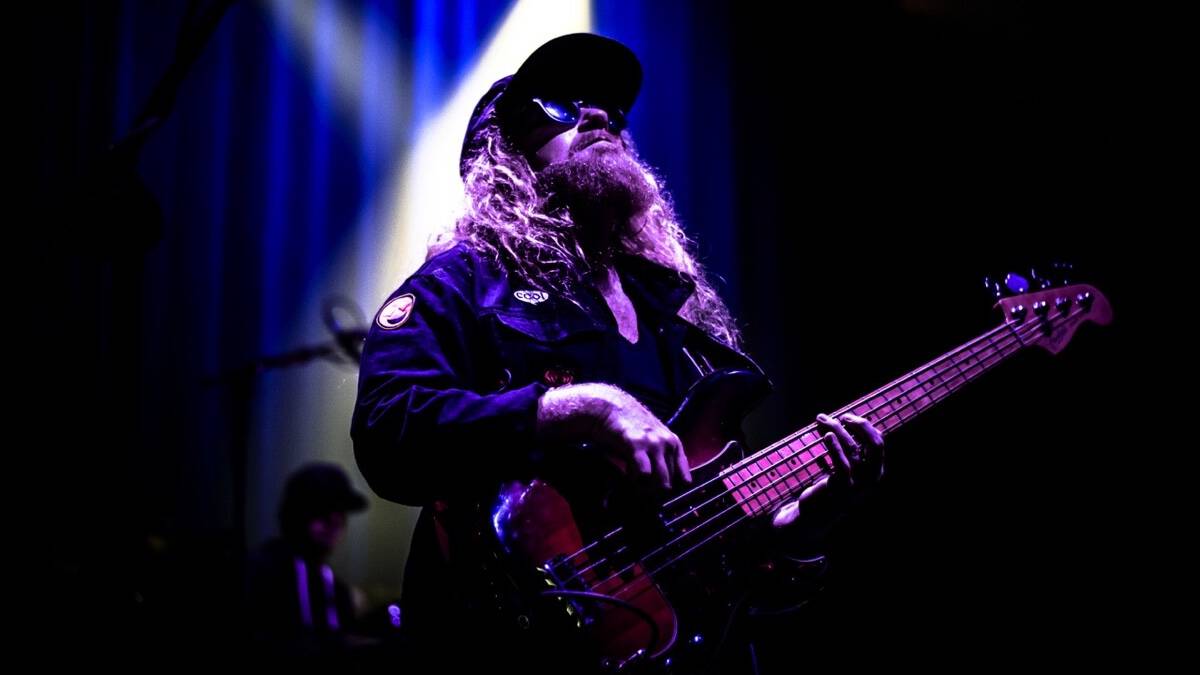
Bassist Erick “Jesus” Coomes…
It is always great to meet a super busy bassist who simply exudes a love for music and his instrument. Erick “Jesus” Coomes fits this description exactly. Hailing from Southern California, “Jesus” co-founded and plays bass for Lettuce and has found his groove playing with numerous other musicians.
Join us as we hear of his musical journey, how he gets his sound, his ongoing projects, and his plans for the future.
Photo, Bob Forte
Featured Videos
Visit Online
www.lettucefunk.com
IG @jesuscsuperstar
FB@jesuscoomes
FB @lettucefunk
Bass Videos
Working-Class Zeros: Episode #2 – Financial Elements of Working Musicians
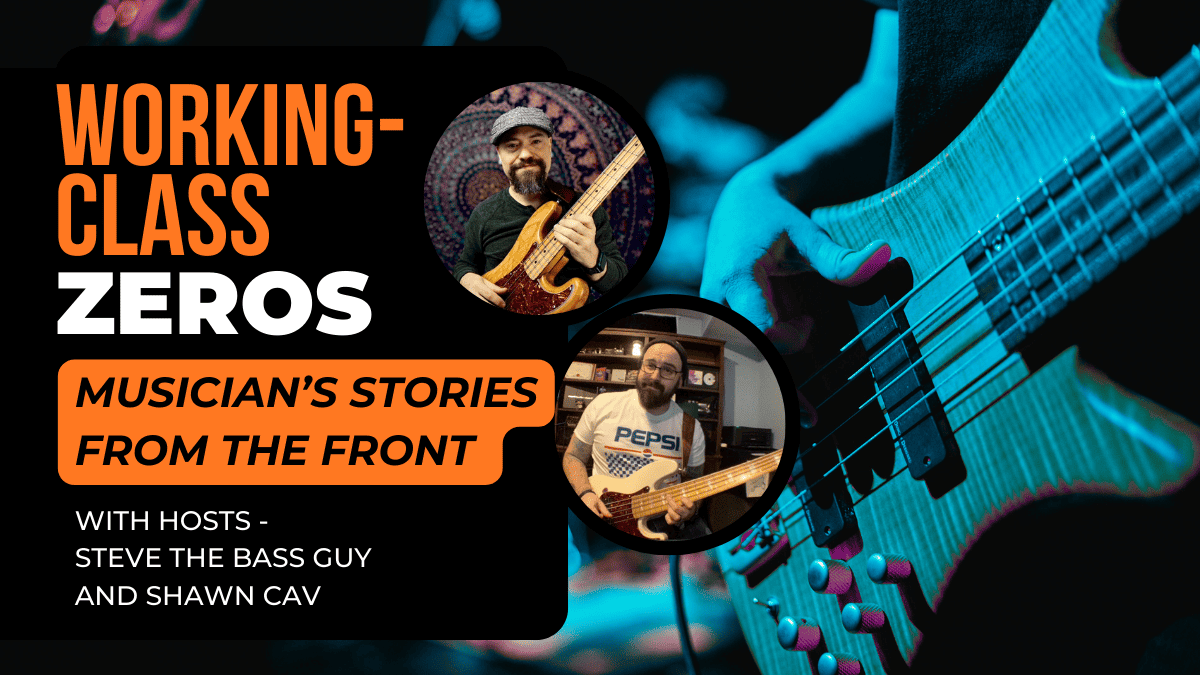
Working-Class Zeros: Episode #2 – Financial Elements of Working Musicians
“These stories from the front are with real-life, day-to-day musicians who deal with work life and gigging and how they make it work out. Each month, topics may include… the kind of gigs you get, the money, dealing with less-than-ideal rooms, as well as the gear you need to get the job done… and the list goes on from there.” – Steve the Bass Guy and Shawn Cav
Latest
This Week’s Top 10 Basses on Instagram
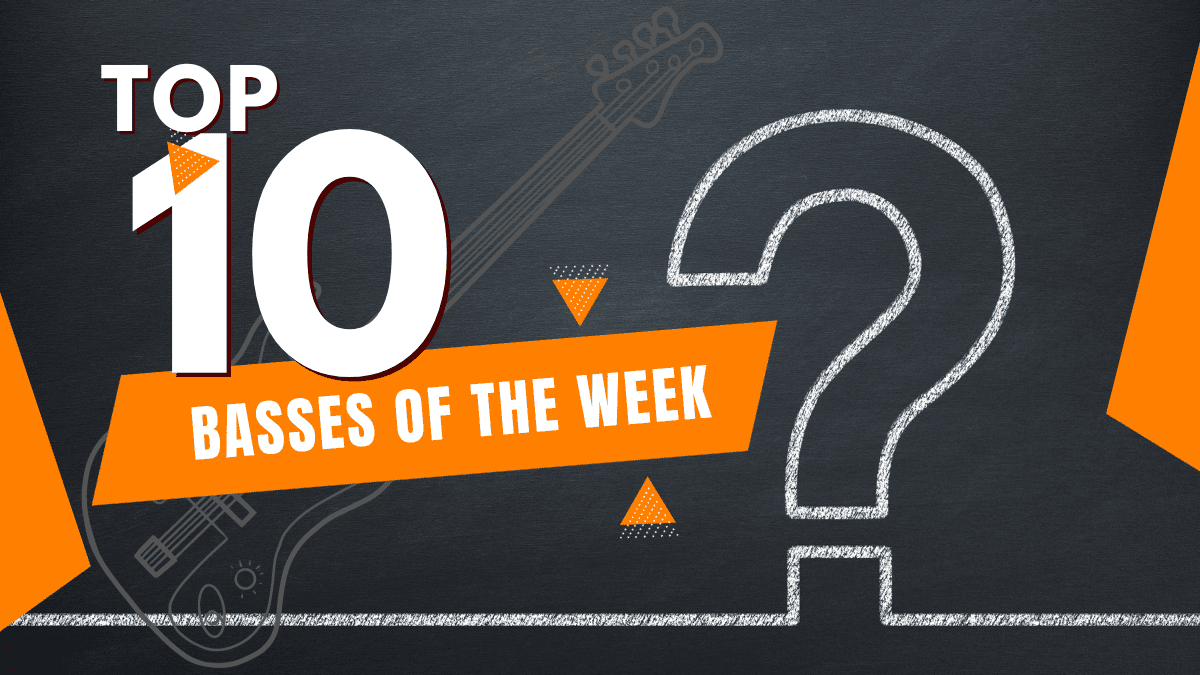
Check out our top 10 favorite basses on Instagram this week…
Click to follow Bass Musician on Instagram @bassmusicianmag
FEATURED @foderaguitars @overwaterbasses @mgbassguitars @bqwbassguitar @marleaux_bassguitars @sugi_guitars @mikelullcustomguitars @ramabass.ok @chris_seldon_guitars @gullone.bajos
Bass CDs
New Album: Jake Leckie, Planter of Seeds
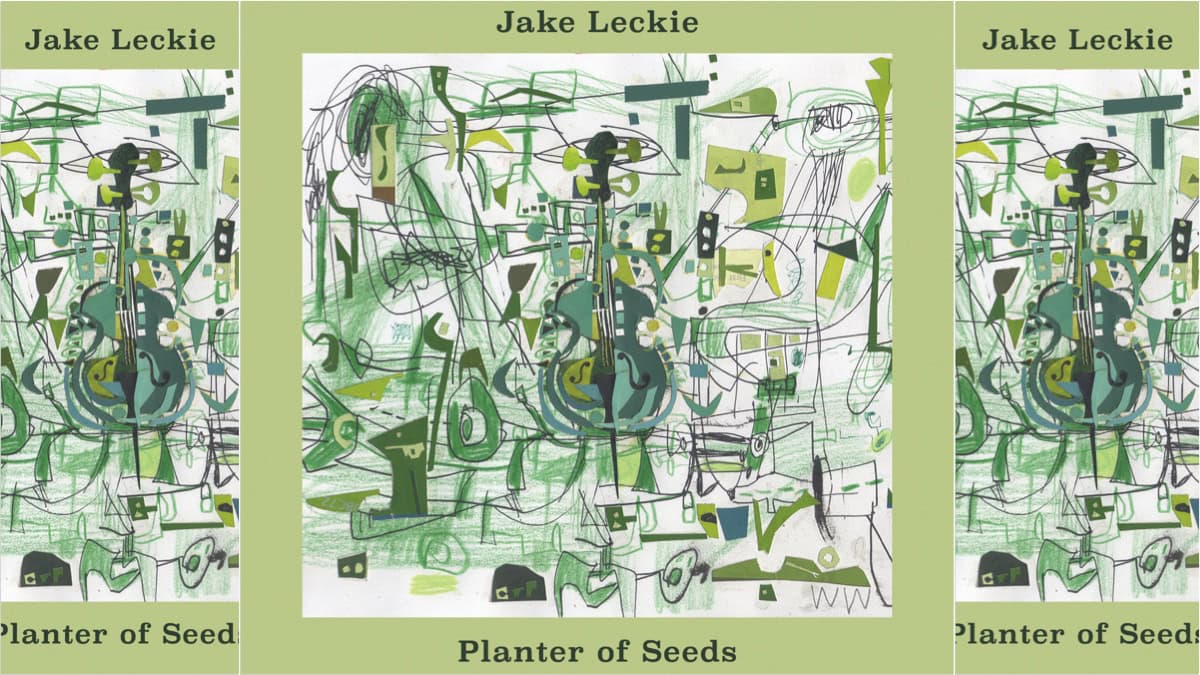
Bassist Jake Leckie and The Guide Trio Unveil New Album Planter of Seeds,
to be released on June 7, 2024
Planter of Seeds is bassist/composer Jake Leckie’s third release as a bandleader and explores what beauty can come tomorrow from the seeds we plant today.
What are we putting in the ground? What are we building? What is the village we want to bring our children up in? At the core of the ensemble is The Guide Trio, his working band with guitarist Nadav Peled and drummer Beth Goodfellow, who played on Leckie’s second album, The Guide, a rootsy funky acoustic analog folk-jazz recording released on Ropeadope records in 2022. For Planter of Seeds, the ensemble is augmented by Cathlene Pineda (piano), Randal Fisher (tenor saxophone), and Darius Christian (trombone), who infuse freedom and soul into the already tightly established ensemble.
Eight original compositions were pristinely recorded live off the floor of Studio 3 at East West Studios in Hollywood CA, and mastered by A.T. Michael MacDonald. The cover art is by internationally acclaimed visual artist Wayne White. Whereas his previous work has been compared to Charles Mingus, and Keith Jarrett’s American Quartet with Charlie Haden, Leckie’s new collection sits comfortably between the funky odd time signatures of the Dave Holland Quintet and the modern folk-jazz of the Brian Blade Fellowship Band with a respectful nod towards the late 1950s classic recordings of Ahmad Jamal and Miles Davis.
The title track, “Planter of Seeds,” is dedicated to a close family friend, who was originally from Trinidad, and whenever she visited family or friends at their homes, without anyone knowing, she would plant seeds she kept in her pocket in their gardens, so the next season beautiful flowers would pop up. It was a small altruistic anonymous act of kindness that brought just a little more beauty into the world. The rhythm is a tribute to Ahmad Jamal, who we also lost around the same time, and whose theme song Poinciana is about a tree from the Caribbean.
“Big Sur Jade” was written on a trip Leckie took with his wife to Big Sur, CA, and is a celebration of his family and community. This swinging 5/4 blues opens with an unaccompanied bass solo, and gives an opportunity for each of the musicians to share their improvisational voices. “Clear Skies” is a cathartic up-tempo release of collective creative energies in fiery improvisational freedom. “The Aquatic Uncle” features Randal Fisher’s saxophone and is named after an Italo Calvino short story which contemplates if one can embrace the new ways while being in tune with tradition. In ancient times, before a rudder, the Starboard side of the ship was where it was steered from with a steering oar. In this meditative quartet performance, the bass is like the steering oar of the ensemble: it can control the direction of the music, and when things begin to unravel or become unhinged, a simple pedal note keeps everything grounded.
The two trio tunes on the album are proof that the establishment of his consistent working band The Guide Trio has been a fruitful collaboration. “Santa Teresa”, a bouncy samba-blues in ? time, embodies the winding streets and stairways of the bohemian neighborhood in Rio de Janeiro it is named for. The swampy drum feel on “String Song” pays homage to Levon Helm of The Band, a group where you can’t always tell who wrote the song or who the bandleader is, proving that the sum is greater than the individual parts. Early jazz reflected egalitarianism in collective improvisation, and this group dynamic is an expression of that kind of inclusivity and democracy.
“The Daughters of the Moon” rounds out the album, putting book ends on the naturalist themes. This composition is named after magical surrealist Italo Calvino’s short story about consumerism, in which a mythical modern society that values only buying shiny new things throws away the moon like it is a piece of garbage and the daughters of the moon save it and resurrect it. It’s an eco-feminist take on how women are going to save the world. Pineda’s piano outro is a hauntingly beautiful lunar voyage, blinding us with love. Leckie dedicates this song to his daughter: “My hope is that my daughter becomes a daughter of the moon, helping to make the world a more beautiful and verdant place to live.”
Bass CDs
Debut Album: Nate Sabat, Bass Fiddler
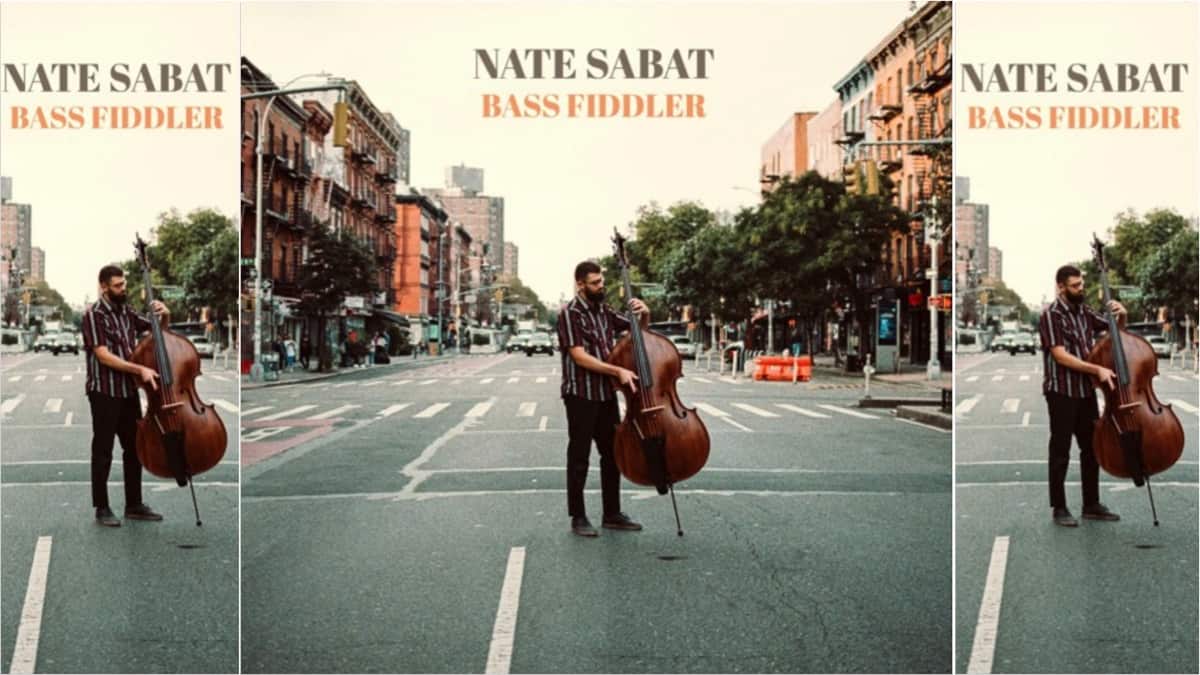
In a thrilling solo debut, bassist Nate Sabat combines instrumental virtuosity with a songwriter’s heart on Bass Fiddler…
The upright bass and the human voice. Two essential musical instruments, one with roots in 15th century Europe, the other as old as humanity itself.
On Bass Fiddler (Adhyâropa Records ÂR00057), the debut album from Brooklyn-based singer-songwriter and bass virtuoso Nate Sabat, the scope is narrowed down a bit. Drawing from the rich and thriving tradition of American folk music, Sabat delivers expertly crafted original songs and choice covers with the upright bass as his lone tool for accompaniment.
The concept was born a decade ago when Sabat began studying with the legendary old-time fiddler Bruce Molsky at Berklee College of Music. “One of Bruce’s specialties is singing and playing fiddle at the same time. The second I heard it I was hooked,” recalls Sabat. “I thought, how can I do this on the bass?” From there, he was off to the races, arranging original and traditional material with Molsky as his guide. “Fast forward to 2020, and I — like so many other musicians — was thinking of how to best spend my time. I sat down with the goal of writing some new songs and arranging some new covers, and an entire record came out.” When the time came to make the album, it was evident that Molsky would be the ideal producer. Sabat asked him if he’d be interested, and luckily he was. “What an inspiration to work with an artist like Nate,” says Molsky. “Right at the beginning, he came to this project with a strong, personal and unique vision. Plus he had the guts to try for a complete and compelling cycle of music with nothing but a bass and a voice. You’ll hear right away that it’s engaging, sometimes serious, sometimes fun, and beautifully thought out from top to bottom.”
While this record is, at its core, a folk music album, Sabat uses the term broadly. Some tracks lean more rock (‘In the Shade’), some more pop (‘White Marble’, ‘Rabid Thoughts’), some more jazz (‘Fade Away’), but the setting ties them all together. “There’s something inherently folksy about a musician singing songs with their instrument, no matter the influences behind the compositions themselves,” Sabat notes. To be sure, there are plenty of folk songs (‘Louise’ ‘Sometimes’, ‘Eli’) and fiddling (‘Year of the Ox’) to be had here — the folk music fan won’t go hungry. There’s a healthy dose of bluegrass too (‘Orphan Annie’, ‘Lonesome Night’), clean and simple, the way Mr. Bill Monroe intended.
All in all, this album shines a light on an instrument that often goes overlooked in the folk music world, enveloping the listener in its myriad sounds, textures, and colors. “There’s nothing I love more than playing the upright bass,” exclaims Sabat. “My hope is that listeners take the time to sit with this album front to back — I want them to take in the full scope of the work. I have a feeling they’ll hear something they haven’t heard before.”
Available online at natesabat.bandcamp.com/album/walking-away


















